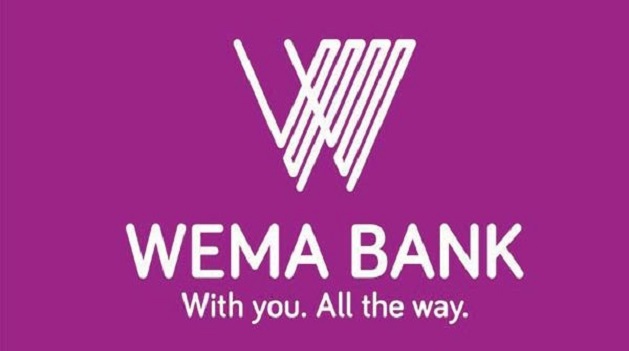General News
How Discount Solutions Can Drive Customer Loyalty in Africa

In Africa’s economically diverse and highly competitive market, building customer loyalty has never been more important for businesses. The continent’s consumers are highly price-sensitive, driven by the need to get a bargain or good deal on purchases. Indeed, research on consumer behaviour indicates that affordability and value for money are top considerations for many Africans when making purchasing decisions.

For businesses seeking to stand out and thrive, discount solutions such as those offered by SeerBit provide a powerful way to attract and retain customers. These strategies not only build trust but also inspire repeat patronage, turning casual buyers into lifelong advocates.
Discounts also tap into cultural values and purchasing behaviours that vary across regions, ensuring that businesses connect deeply with their target audiences.
Importance of Discounts in African Markets
Economic factors play a critical role in the effectiveness of discounts. With much of Africa’s population operating on tight budgets, discounts act as a motivating factor that makes goods and services more accessible. For example, a promotional discount can help a consumer purchase essential household items without financial strain. Beyond economic incentives, discounts also tap into emotional triggers that foster brand loyalty. When customers feel they are getting a good deal, they are more likely to associate positive emotions with the brand, enhancing long-term relationships.
Moreover, discounts provide businesses with a competitive advantage in saturated markets. By strategically offering discounts, companies can differentiate themselves from competitors, encouraging customers to choose their products or services over others. This advantage is particularly crucial in sectors like retail and e-commerce where customer retention is key to growth and sustainability.
Popular Discounts Models for African Consumers
Different discount models resonate with African consumers, depending on their needs and cultural contexts.
Loyalty-based discounts: Loyalty-based discounts rewards repeat customers with exclusive deals, encouraging them to continue patronising the business. For instance, a business offering a discount after a specific number or value of purchases not only builds customer trust, but also boosts sales through consistent engagement. This strategy appeals to customers who value recognition for their loyalty.
Seasonal promotions: Seasonal promotions linked to cultural and local events are another effective strategy. For instance, during festive seasons like Ramadan, Christmas, Valentine’s Day, etc., businesses can provide discounts on relevant products, creating an emotional connection with customers while driving sales.
Referral discounts: These are equally impactful, as they leverage word-of-mouth marketing by rewarding existing customers for introducing new ones. This type of discount encourages social proof and expands the business’s customer base organically.
Flexible payment options: When tied to discounts, these are especially powerful in Africa, where digital wallet adoption is growing rapidly. Discounts that incentivise customers to use mobile money or other digital payment methods promote financial inclusion while simplifying transactions. For example, offering a small discount for payments made via platforms like M-Pesa encourages faster adoption of these tools, while enhancing customer satisfaction.
The Role of Technology in Delivering Discounts
Technology is revolutionising how discounts are designed and delivered. Mobile payment systems allow businesses to integrate discounts seamlessly into their platforms. Customers receive instant cashback or discounts at checkout, enhancing convenience and satisfaction.
AI-powered personalisation further elevates the experience by tailoring offers to individual preferences. By analysing customer behaviour, AI algorithms suggest discounts on products that customers are more likely to purchase, increasing conversion rates. This level of personalisation fosters a sense of exclusivity, encouraging customers to return.
Data analytics also plays a crucial role in optimising discount strategies. Businesses can track customer responses to various discount campaigns, identifying what works and what doesn’t. This data-driven approach ensures resources are allocated efficiently, maximising ROI. Companies like SeerBit have built platforms that support instant cashback and reward programs, simplifying the management of discount campaigns for businesses across industries.
Real-World Success Stories
Across Africa, businesses are witnessing tangible benefits from well-implemented discount programs. Jumia Black Friday sales is an example of a successfully implemented discount program. For example, in 2021, Jumia’s Black Friday revenue increased by 30% to $150 million, and it has continued to experience a year-on-year increase. TEMU is also a recent and very good example of a brand that has leveraged discount offerings to drive customer adoption and repeat patronage.
Common Challenges and Solutions
While discounts are highly effective, there are a few challenges that some businesses still have to navigate
Over-discounting: Over-discounting is capable of eroding the profit margins of business. To avoid this, companies should align discounts with broader business goals, offering them strategically rather than indiscriminately.
Fraud: This is a present concern with digital transactions. Secure payment gateways, such as those offered by SeerBit, help mitigate these risks by verifying transactions and ensuring transparency.
Transparency: This is essential for maintaining customer trust. Clear communication about terms and conditions prevents misunderstandings, ensuring customers fully understand the value of the discounts offered. Businesses that prioritise transparency in their discount programs are more likely to build loyal customer bases.
Best Practices for Implementing Discounts
Successful discount programs are built on strategic planning and execution.
Align discount strategies with business goals: This can be to drive sales, enhance customer retention, or increase market share.
Use clear messaging: Discounts should be communicated through engaging campaigns on social media, email and other marketing channels. For instance, using visually appealing graphics and videos of winners can make discount promotions more attractive and authentic.
Promote discounts effectively through social media, email campaigns and partnerships.
Monitor and measure the ROI of discount initiatives. By analysing metrics such as redemption rates and customer feedback, businesses can refine their strategies to achieve better results.
Why Discount Solutions Represent Game-Changer for Businesses
Discount solutions play a critical role in the successful implementation of discount programs. They enable businesses to automate processes like instant cashback and reward allocation, reducing the administrative burden and enhancing customer experience.
SeerBit’s secure and user-friendly discount solution is designed to support innovative discount initiatives tailored to African markets, empowering businesses to deliver value seamlessly. The SeerBit Discount Feature enables businesses to configure and apply discounts based on their unique requirements to suit various product/service types.
With businesses often struggling to implement and manage discounts effectively, leading to missed sales opportunities and customer dissatisfaction, the SeerBit Discount Feature addresses this challenge by providing a user-friendly solution that streamlines the discount configuration process, enabling businesses to attract customers, boost sales and enhance customer satisfaction.
The SeerBit Discount Feature is ideal for businesses of all sizes across various industries, including retail, e-commerce, hospitality and more.
How it Works
With the SeerBit Discount Feature, businesses can access and set up discounts using card BIN with options to specify single or multiple card BINs. Alternatively, discounts can be set up based on payment methods. In addition, the SeerBit Discount Feature allows businesses to decide how the discount is applied. This could be via flat amounts or as a percentage on their prices, thereby encouraging flexibility and convenience.
Users can also define the period for the discount, including start and end dates. This feature allows businesses to schedule discounts in the future or deactivate upcoming discounts
Discount solutions are a proven strategy for driving customer loyalty in Africa. By leveraging technology, understanding market dynamics and adopting best practices, businesses can create meaningful connections with their customers. As competition intensifies, staying ahead requires not just offering discounts but delivering them strategically.
General News
Wema Bank Plans N2M Grant to Empower Women

Innovative financial institution and pioneer of Africa’s first fully digital bank, Wema Bank, has reaffirmed its commitment to advancing women’s empowerment by partnering with the SheCan Conference for the fifth consecutive year.

The collaboration has announced it would empower women with N2 million grant during the 6th edition of SheCan 6.0. conference, that will be held on July 18, 2025, at Balmoral, Federal Palace Hotel, Lagos.
The event is expected to host over 7,000 women under the theme “SheCan Do More.”
Announcing this partnership, Wema Bank through its women-focused platform, SARA by Wema, said it will be awarding ₦2 million in business grants to support women entrepreneurs within the SARA Community.
This grant is to support small and medium businesses within the SARA Community to scale up their business.
Ayodele Olojede, Head, Retail and SME Banking at Wema Bank, said, “Wema Bank is committed to empowering women entrepreneurs by providing the financial backing, tools, training, and networks they need to scale sustainably. Year after year, we’ve seen the incredible ripple effect that access, and opportunity can create in the lives of women and their communities.
“Through SARA by Wema, our goal is to create an environment where Nigerian women can dream bigger, build stronger, and lead the economy with confidence. This partnership with SheCan is a statement of belief in the power of women to transform society.”
“This year’s partnership represents more than sponsorship; it is a tangible investment in helping Nigerian women build sustainable businesses, scale their impact, and contribute meaningfully to economic growth.
“Eligible applicants must be women-led businesses with active Wema Bank accounts and must be registered members of the SARA Community.
“Interested participants are required to submit a written pitch of no more than two pages, detailing their business and founder story, the problem being solved, target audience and competitive advantage, proposed use of the grant, and the expected outcomes and community impact. Entries must also include the applicant’s Wema Bank account number, full name, and the email address used to join the SARA Community.”
General News
Unlicensed Investment Firms Fall Hard in Lagos Court

Justice D.I. Dipeolu of the Federal High Court in Ikoyi, Lagos, has convicted two companies, FARM360 Limited and MCBHADMOS Trans-Atlantic Trade Limited, for illegal capital market operations.

The Economic and Financial Crimes Commission (EFCC) disclosed that the companies were arraigned on June 16 by the Lagos Zonal Directorate 2 of the EFCC on a five-count charge for operating collective investment schemes without valid licences from either the Central Bank of Nigeria (CBN) or the Securities and Exchange Commission (SEC).
The charges allege that between 2021 and 2022, the firms collected approximately N80 million from several investors but failed to refund the money or pay accrued interest. One of the counts stated that the companies operated without a valid licence to conduct investment management, violating Section 57 of the Banks and Other Financial Institutions Act 2020.
The companies pleaded not guilty, but EFCC investigator Nnadikwu Izuchukwu Collins presented evidence that included a petition from investors who claimed the firms promised high returns through agricultural and forex trading investments. The petition revealed the group invested a total of N93 million.
Investigations showed neither FARM360 nor MCBHADMOS held the necessary licences from the SEC or CBN. A Fidelity Bank statement revealed that the N80 million received was used for personal purposes. The directors of both companies remain at large, with efforts underway to apprehend them.
The prosecution submitted bank statements, the investor petition, and official correspondence with the CAC, CBN, and SEC as evidence, all of which were admitted by Justice Dipeolu.
The court convicted both companies on all counts and imposed fines of N5 million per count.
In a related case, the court also convicted Quintessential Investment Company Limited for similar illegal capital market activities, following its arraignment on two counts of operating collective investment schemes without CBN approval.
General News
Burna Boy Distances Himself from Meme Coin, Labels Crypto as Fraud

Burna Boy, Grammy-winning Nigerian artist, has publicly distanced himself from a meme coin circulating online that falsely uses his name and image for promotion.

Burna Boy
In a statement shared via Instagram, the Afrobeats star made it clear that he has no involvement in any cryptocurrency ventures, describing such schemes as fraudulent.
His comments come amid growing traction of a meme coin allegedly linked to him, which has been circulating on social media platform X (formerly Twitter).
“I don’t do any internet ‘coin’ business. I see it as fraud and I have no interest in any of that,” Burna Boy wrote. “So if you see anyone using my name for such, please disregard or report them.”
The singer urged fans to remain vigilant and to report anyone promoting the crypto project under false pretenses.

 Broadcasting2 days ago
Broadcasting2 days agoNigeria Week Ahead: Inflation, Oil and Naira in focus

 News2 days ago
News2 days agoEFCC: Accusations Against Our Chairman Are Baseless and Misleading

 Telecom1 day ago
Telecom1 day agoMTN Nigeria Targets $1Bn Cloud Market with Largest Modular Data Centre

 Telecom1 day ago
Telecom1 day agoNCC Introduces N10m Licence Fee for Bulk SMS Service

 E-Business1 day ago
E-Business1 day agoFirm Highlights Top Risks of Quantum Computing

 General News1 day ago
General News1 day agoAM Best Reaffirms Stable Outlook for Cyber Insurance Market

 Telecom1 day ago
Telecom1 day agoPAT Taps Osi as CEO

 General News1 day ago
General News1 day agoBurna Boy Distances Himself from Meme Coin, Labels Crypto as Fraud



























